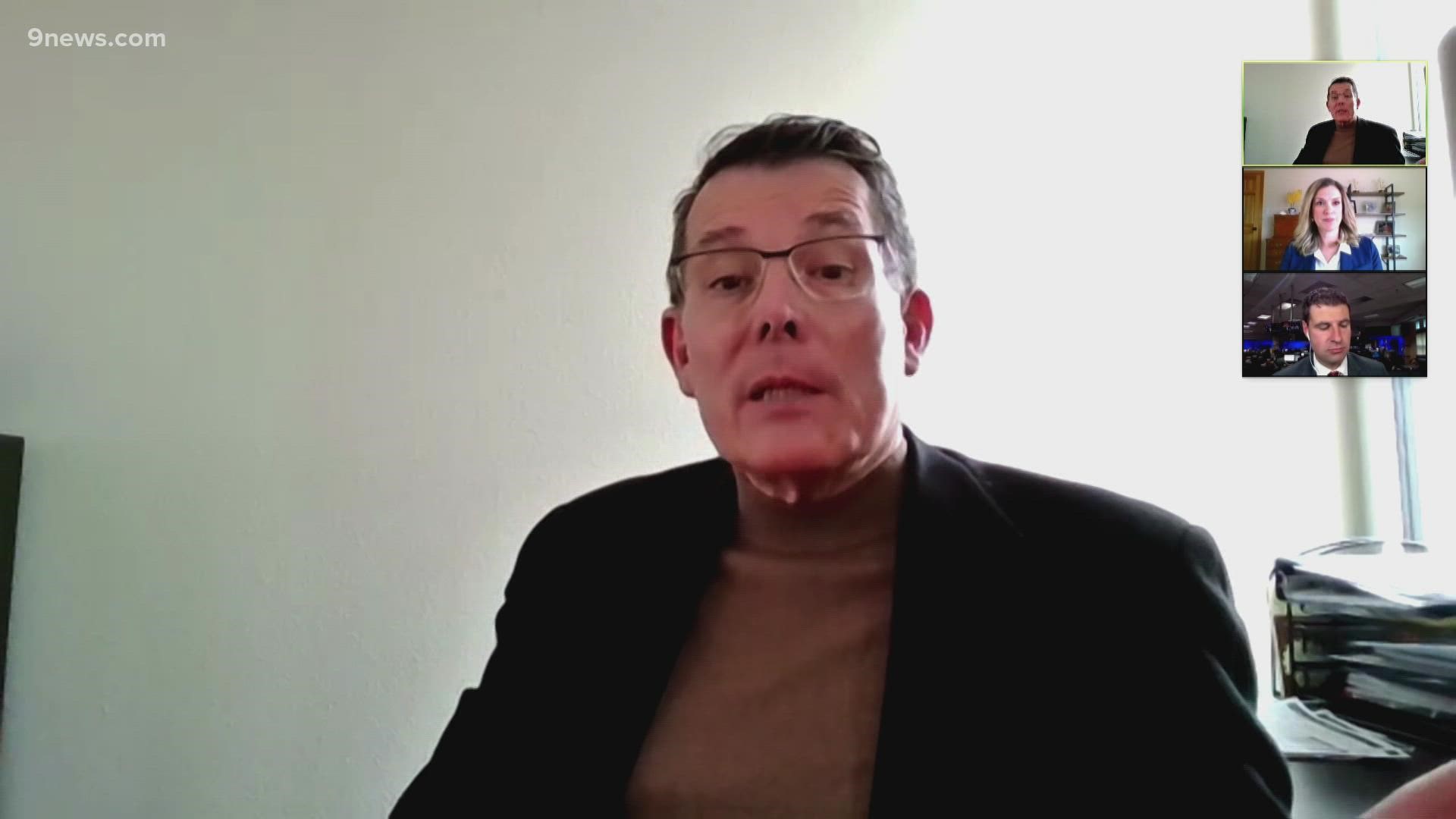DENVER — BA.2, or "stealth", is the name of the new omicron sub-variant that has made headlines in China and that has made its way into the United States. It's also the same one that has now been detected in Colorado's wastewater.
It's called the stealth variant because, according to Dr. Ricardo González-Fisher with Servicios de la Raza, it has experienced a change in the genetic structure of the virus that makes it harder to detect with rapid COVID-19 tests.
"It has a genetic mutation in which it’s losing its capacity to produce one of the proteins or the spikes of the virus that is used to detect it on the rapid PCR tests," Gonzalez-Fisher said. "So even if you’re positive, sometimes the tests will result as negative, so it needs a different type of testing."
Gonzalez-Fisher said that the BA.2 variant is growing faster and that it has a higher rate of spread than the original omicron variant.
"It’s about 50% more contagious,” he said.
Although it is not yet clear how aggressive this subvariant is, González-Fisher emphasized the importance of getting vaccinated since, according to him, people who are not vaccinated are at risk of serious illness.
"There are Japanese studies that say that [BA.2] can be as aggressive as delta," he added.
According to Gonzalez-Fisher, thanks to the efforts of the community, with the vaccinated population, Colorado is not seeing as many cases as before.
Vanessa Bernal with CDPHE also joined Gonzalez-Fisher and 9NEWS Watch anchor Chris Bianchi in this week's segment to discuss Colorado's current COVID numbers and what they mean.
The state's current numbers as of Tuesday are:
- 110 new cases reported
- 46 deaths
- 151 people hospitalized with COVID-19
- 22 new hospitalizations
- The seven-day positivity average is 2.5%. The state's goal is to keep this number below 5%.
Bernal also made mention of the state's current standing on the omicron subvariant. CDPHE identified the first case of BA.2 in the state in late December.
“What has been found so far here in the state about the 'stealth' variant is that it has been found in 7.01% of the samples so far,” Bernal said.
Bernal added that those numbers take two weeks to process and are updated every Wednesday, so those figures are up to date as of February 27 of this year.
The low vaccination rate of the Hispanic population in Colorado has continually been a talking point in these segments because, despite efforts from the state to get vaccines to underrepresented communities, only minimal increases appear to be occurring within that demographic.
As of Jan. 25, the state's vaccine dashboard showed that 38% of all Hispanic/Latinos in Colorado had received at least one dose of a COVID-19 vaccine. That number is currently sitting at 39.52% as of Tuesday.
However, according to Bernal, the state is taking into account a new percentage from a model that has not been used before, which could raise that number by nearly 10%.
“It is a model percentage based on the zip code where people were vaccinated, because ethnicity is often left blank," she said.
The new study, which was developed by CDPHE and Colorado School of Public Health, uses a model based on the Bayesian Improved Surname and Geocoding (BISG) methodology. BISG predicts race and ethnicity using a Bayesian algorithm that uses last names and location to determine the probability that an individual belongs to a given race and ethnicity.
In this case, the model used the algorithm to best estimate the race and ethnicity of vaccinated patients who did not self-report.
"So based on this projection it is estimated that in reality 47.70% of the Hispanic community is vaccinated," Bernal said.
Servicios De La Raza, the state's largest nonprofit serving Latinos, continues to work to bring more resources and information about COVID-19 to residents of Colorado who are the most difficult to reach.
They offer an extended hours clinic every Tuesday from 4 p.m. to 8 p.m. at their location at 3131 W. 14th Ave.
As the State of Colorado ends its program for free at-home COVID-19 tests, it also will move from offering vaccines through state-run community vaccination sites to traditional healthcare settings beginning March 31.
CDPHE said the transition from community vaccination sites will be phased, and equity will continue to be prioritized with mobile vaccine buses.
Colorado's mobile vaccine clinics will continue operations through at least June 30.
CDPHE said this step is part of the state’s Roadmap to Moving Forward. Final operations for community vaccination sites will be listed on the state’s website.
SUGGESTED VIDEOS: COVID-19 Coronavirus

